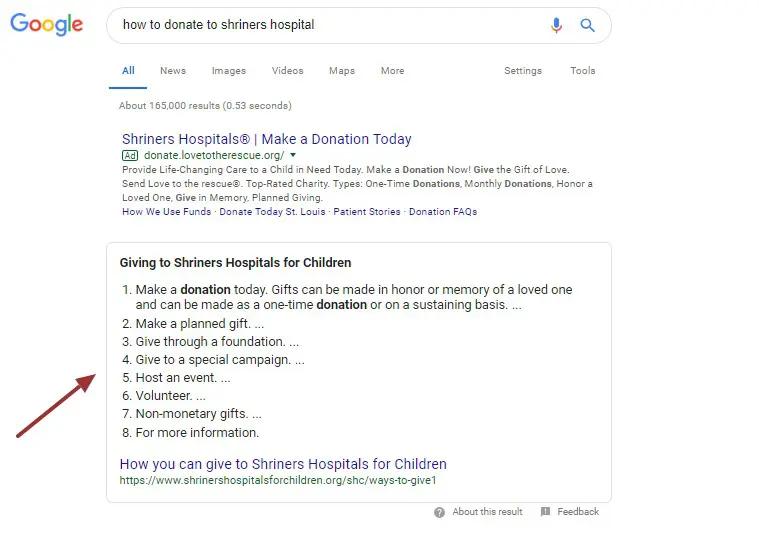We’ve all heard how popular voice search optimization is, but the logistics are murkier, and the data can be tough to come by. See, when smart speakers or digital assistants provide oral answers to voiced questions, they don’t lead to actual visits to your site. But if you’re looking for ways to naturally increase awareness of your cause and give your website a boost in the eyes of search engines, voice search should be on your radar as a nonprofit marketer.
So do you know how it applies to your organization’s website? Through this post, we’ll get a better grasp on what voice search
What is Voice Search?
Oddly enough, a voice search is a web search performed using your voice. This typically happens through a smart speaker or digital assistant, like an Amazon Echo, Siri or Google Home.
When users ask Google Home or Google Assistant a question, those answers are pulled from online content that is ranking for that question (or a key part of it) in the search engine. Within Google, the search result that holds the featured snippet usually wins the voice search response.
What Is a Featured Snippet?
A Featured Snippet is Google’s best guess at answering someone’s question. When one exists, it’s usually the preferred answer for voice search queries. Featured snippets will appear as a block at the top of the Google search results page and include a brief answer to the question (extracted from the linked webpage) and a link to the page along with the page title and URL.

Aside from the benefits through voice search, featured snippets will also drive traffic through desktop and mobile search. It’s the first result shown on the page, affectionately called position #0 for SEOs. The page that the featured snippet is pulled from is generally already ranking fairly high (usually somewhere between first and third positions) on the results page, signaling to Google that it contains quality content.
Does It Make Sense for Your Nonprofit?
Any nonprofit with a website can optimize content for voice search. However, it works best for web pages that can answer specific and frequently asked questions in a short and succinct manner. Does that sound like any pages on your nonprofit’s site? Do you see that potential within your content? Then voice search optimization could be a good fit for you.
It’s pretty unlikely that it would make sense for every page on your website. To test the waters, start with two or three key pages that are already popular with search traffic and edit them to follow the voice search optimization best practices outlined below. From there, you can look into opportunities with additional pages on your site.
Local Nonprofits Have Seen Success
Since voice search responses often relate to nearby happenings, the ideal nonprofit candidates for voice search optimization are those with local programs, services and activities that are popular in their communities.
For example, a local animal rescue would be the ideal candidate for the target voice search keyword phrase: “are there any animal adoption events this weekend?”.
Voice Search Optimization
In order to optimize a page of web content for a specific word or phrase, we’d recommend doing keyword research to select the phrase with the most volume and opportunity for your organization. However, if you’re not able to get help with this and if you don’t have the capacity to learn this new skill, you can select a keyword that you believe would resonate most with your audience.
You know your audience. You’ve spoken with your supporters. How would they ask about nearby volunteer opportunities? Use that question as your keyword for your nonprofit’s Volunteer Opportnities page.
Voice search optimization is a bit different than your standard keyword optimization. Many times, the actual question does not need to be the main keyword. Instead, it can be a related phrase that contains the primary keyword you’re targeting.
For example, your Volunteer Opportunities page would not need to have “what are local volunteer opportunities?” as its main target keyword. Instead, it could target “local volunteer opportunities” and use the question form once or twice within the text, making sure to offer a detailed and complete answer to the question.
Optimization Recommendations
In addition to following standard optimization tips, you’ll want to do the following.
- Write in a conversational tone — Let your voice come through in your writing to help connect with your user right away.
- Use the target keyword question as a heading within the content — And directly follow the heading with the best possible answer to that question in a short and succinct manner.
- Use related or similar phrases to your keyword throughout the content — This indicates to both search engines and real people that your page adequately covers the topic at hand.
- Claim your Google My Business listings — Start appearing for local search queries.
For example, the Oblates of the Virgin Mary optimized

Voice Search Strategy
So let’s pull all of this together into a strategy you can use now. To optimize your content for voice search, begin with a five-part strategy:
- Ensure your Google My Business listings are complete and accurate. This is especially important for local searches of services and programs.
- Review your current website content, looking for voice search potential through content that does or has the potential to answer questions that you get asked all the time. Common question words could be “how to”, “what is”, “how
do ” and “how does”. - Update those pages and posts with voice search potential. Ensure that the pages follow all of the voice search optimization tips listed above, as well as standard search engine optimization best practices.
- Add meta descriptions to all pages and posts on your sites to improve click-through rates within search engines (that likely contribute to rankings).
- Create new blog posts targeted toward common supporter questions that you don’t currently have content to support, providing detailed answers.
Measuring Success
Measuring search engine optimization success is complicated, but
That being said, there are still wins for voice search. Use an SEO tracking tool to keep track of pages with featured snippets or that are ranking in one of the top three positions in search engine results. You can even use a smart speaker or digital assistant to test your target question keyword yourself. Does it read you a blurb from your website? If you’re not quite there yet, think about how you can improve your answer to beat the current winning answer.
Are you considering optimizing your nonprofit’s website for voice search this year? Do you have any other questions about voice search optimization? Let’s talk best practices in the comments below.
What You Should Do Now
01. Come to Nonprofit Website Office Hours
We cover a new topic every few weeks. Plus get a live answer to any website-related question you're wrestling with.
02. Book a Website Call
Find a time to discuss your nonprofit's website needs. Discover what's worked for other nonprofits like you and see how easy building your new site can be.
03. Start a Free Website Trial
Try our nonprofit website platform for yourself. Instantly get access to every feature to see if it's the right fit for your needs. No credit card required.

Thank you for this important article .
I’m glad you found it helpful, Halima. Good luck optimizing!
Thanks for sharing this post!! The use of voice search is popular and it’s only gaining popularity, especially with teens.
You’re very welcome, Rob. And I agree! I’m excited to see how search will evolve in the next couple of years.